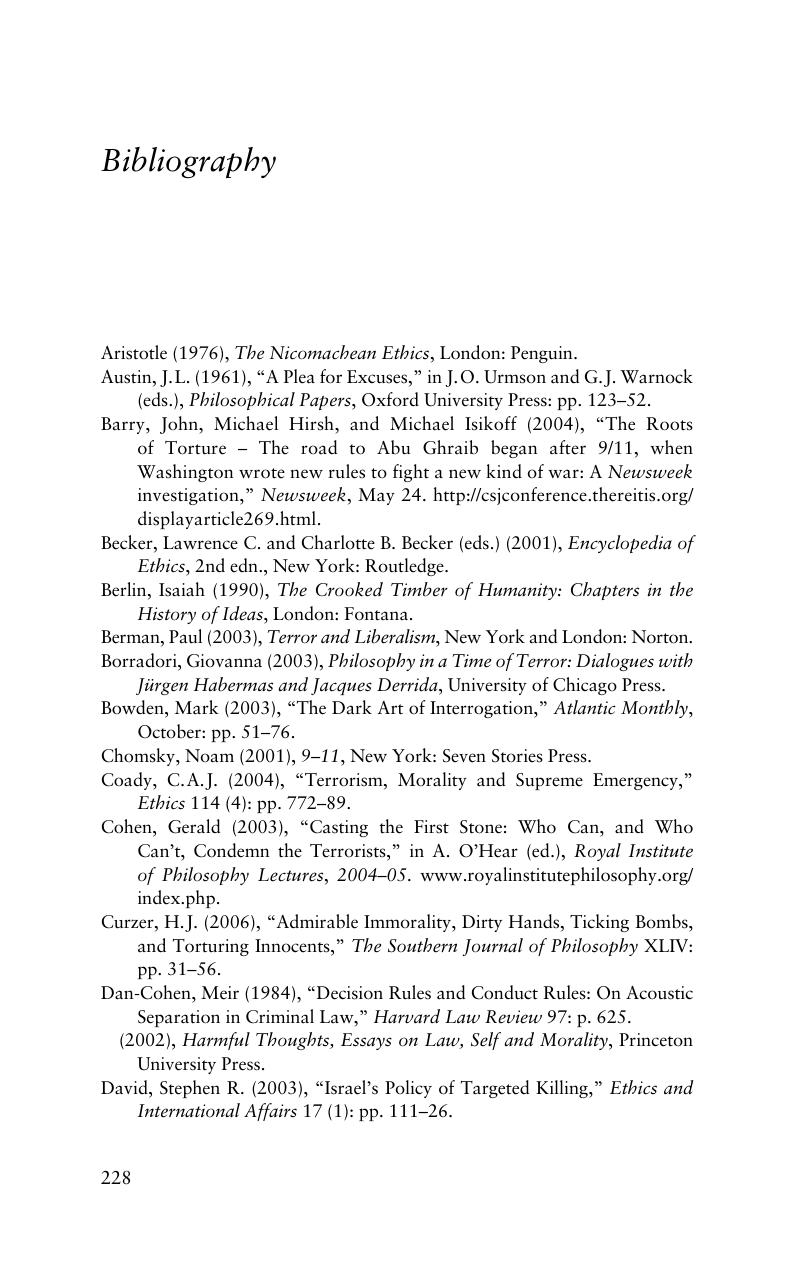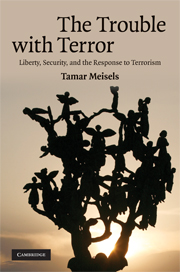Bibliography
Published online by Cambridge University Press: 04 August 2010
Summary

- Type
- Chapter
- Information
- The Trouble with TerrorLiberty, Security and the Response to Terrorism, pp. 228 - 233Publisher: Cambridge University PressPrint publication year: 2008



